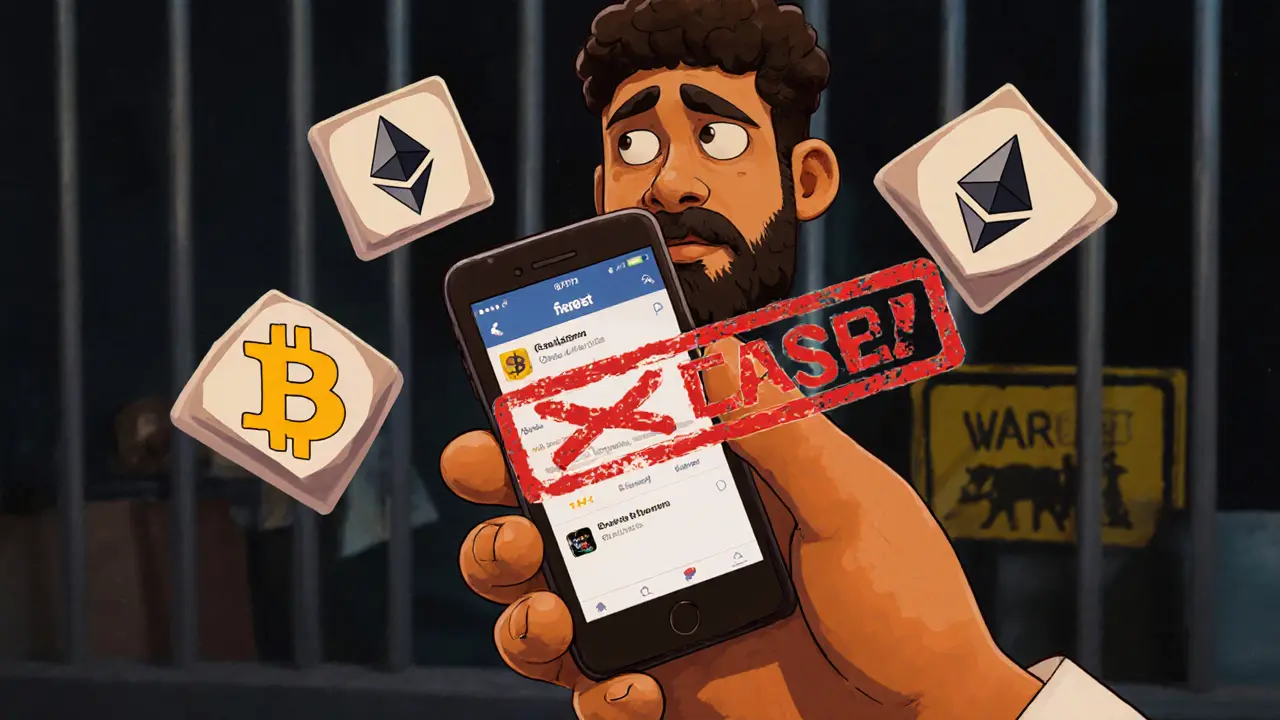FRA Crypto Penalties: What Happens If You Break the Rules
When you trade or hold cryptocurrency, you’re not just dealing with price charts—you’re under the watch of FRA crypto penalties, financial sanctions enforced by regulatory bodies that can freeze assets, block exchanges, and lead to criminal charges. These aren’t warnings. They’re enforcement actions backed by courts, seized hardware, and multi-million-dollar asset forfeitures. Countries like the U.S., Germany, and Australia have built teams just to track crypto transactions. If you’re using unlicensed platforms, hiding transactions with privacy coins, or moving funds through offshore exchanges, you’re playing with fire.
Crypto regulation, the set of rules governing how digital assets can be bought, sold, and stored isn’t optional anymore. It’s everywhere. The U.S. Treasury’s OFAC list blocks over 200 crypto addresses tied to sanctioned entities. Russia’s ban on unlicensed exchanges led to arrests. Angola jailed miners for stealing grid power. These aren’t outliers—they’re examples of a global shift. Financial sanctions, government-imposed restrictions that cut off access to banking, exchanges, or digital wallets now target not just criminals, but everyday users who ignore licensing rules or use platforms flagged as high-risk.
It’s not about whether you think crypto is legal or not. It’s about whether the platform you use is licensed, whether your wallet is traceable, and whether you’ve reported taxable activity. A single transaction on a banned exchange like Garantex or Blockfinex can trigger an audit. Using privacy coins like Monero doesn’t make you anonymous—it makes you a red flag. Governments don’t need to crack encryption to catch you. They just need to see where your coins came from—and who you sent them to.
What you’ll find below are real cases: exchanges shut down, wallets seized, miners jailed, and airdrops turned into scams because someone ignored the rules. These aren’t hypotheticals. They’re lessons written in fines, court dates, and lost funds. Whether you’re trading on a DEX, mining with solar power, or just holding Bitcoin in Portugal, you need to know where the line is—and how easily it can be crossed.
Imprisonment Penalties for Crypto Promotion in Egypt: What You Need to Know
Egypt imposes prison time and heavy fines for promoting cryptocurrency. Learn how the law works, who it targets, and why millions still use crypto despite the risks.
